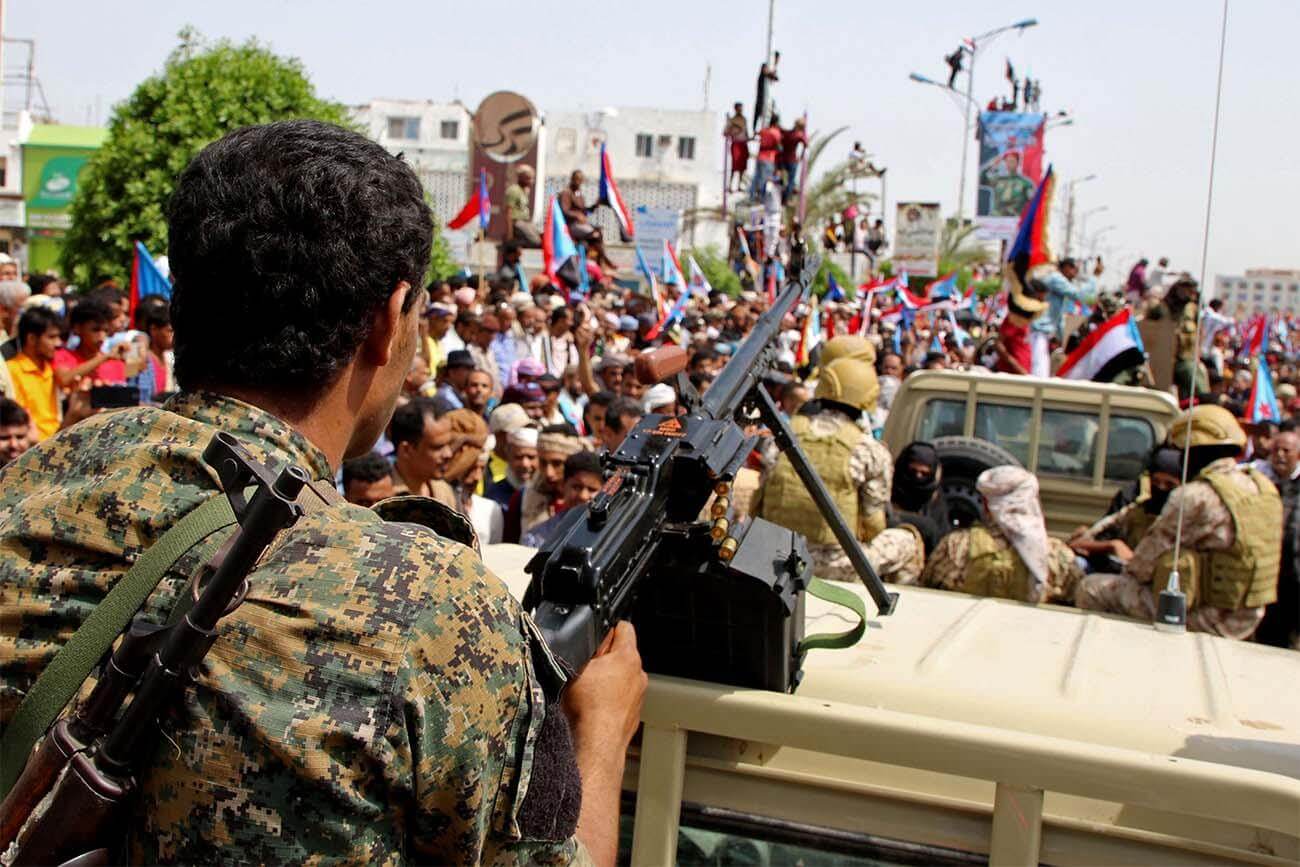Yemen’s separatist Southern Transitional Council (STC) announced on Wednesday that it would be abandoning its self-rule in the South as the Saudi Arabia-led coalition (SLC) presented its plan to hasten the stalled peace process in the war-torn country. The Saudi deal also includes a power-sharing agreement between the STC and President Abd-Rabbu Mansour Hadi’s government in a bid to reunite the allies in a joint fight against the Iran-backed Houthis.
In December 2018, the United Nations (UN) attempted to broker peace talks in Stockholm to discuss the demilitarization of the port of Hodeida and prisoner exchange. However, the accord faltered, with disagreements between the Yemeni government and the Houthis on several fronts. The discussions were unable to address the increasing strikes in both Saudi Arabia and Yemen by the Houthis and the Saudi administration, respectively. A power-sharing deal between the STC, which is backed by the United Arab Emirates (UAE), was signed by the Hadi government in Riyadh in November 2019, but was also not implemented, leading to the STC taking over Aden and declaring self-rule in the southern regions. The STC and Hadi administration were allied, but infighting between the two sides and a Houthi clash leading to the STC moving south has led to a prolongment of the conflict.
The revised framework calls for a new governor and police chief for Aden, which STC spokesperson Nizar Haitham said that it had already appointed on Wednesday. Further, the Yemeni Prime Minister now has 30 days to form a cabinet of 24 members, equally representing the north and south and inclusive of STC representatives. In these 30 days, all “medium and heavy” apparatus is to leave Aden, and forces in the neighbouring province of Abyan have to separate and return to their previous positions. The Saudi initiative also stressed upon the need for the June ceasefire to continue.
So far, the absence of effective governance in the south has generated a breeding ground for volatility, leaving a conducive environment for the possible resurgence of the Al Qaeda in the Arabian Peninsula (AQAP). The STC’s activities have impeded political resolution efforts, exacerbating the on-ground military situation. In addition to the coronavirus pandemic, a cholera epidemic, and natural disasters hitting the war-torn country, the STC was trying to emerge as an alternate leader to provide relief to ordinary Yemenis with heavy humanitarian aid from the UAE. Simultaneously, as the Saudis struggled to keep up their financial and military commitments to the Hadi government, the former also claimed that they have received no humanitarian or financial assistance from the Emirates in combating the same issues in the North.
The United Nations’ special envoy to Yemen deemed the initiative as a crucial move towards a peaceful resolution of the conflict, that has lasted over five years and led to the “world’s worst humanitarian crisis”.
See also:
The COVID-19 Pandemic Is Deepening Yemen’s Devastating Humanitarian Crisis
Understanding the Yemen Crisis Through the Lens of Foreign Actors

